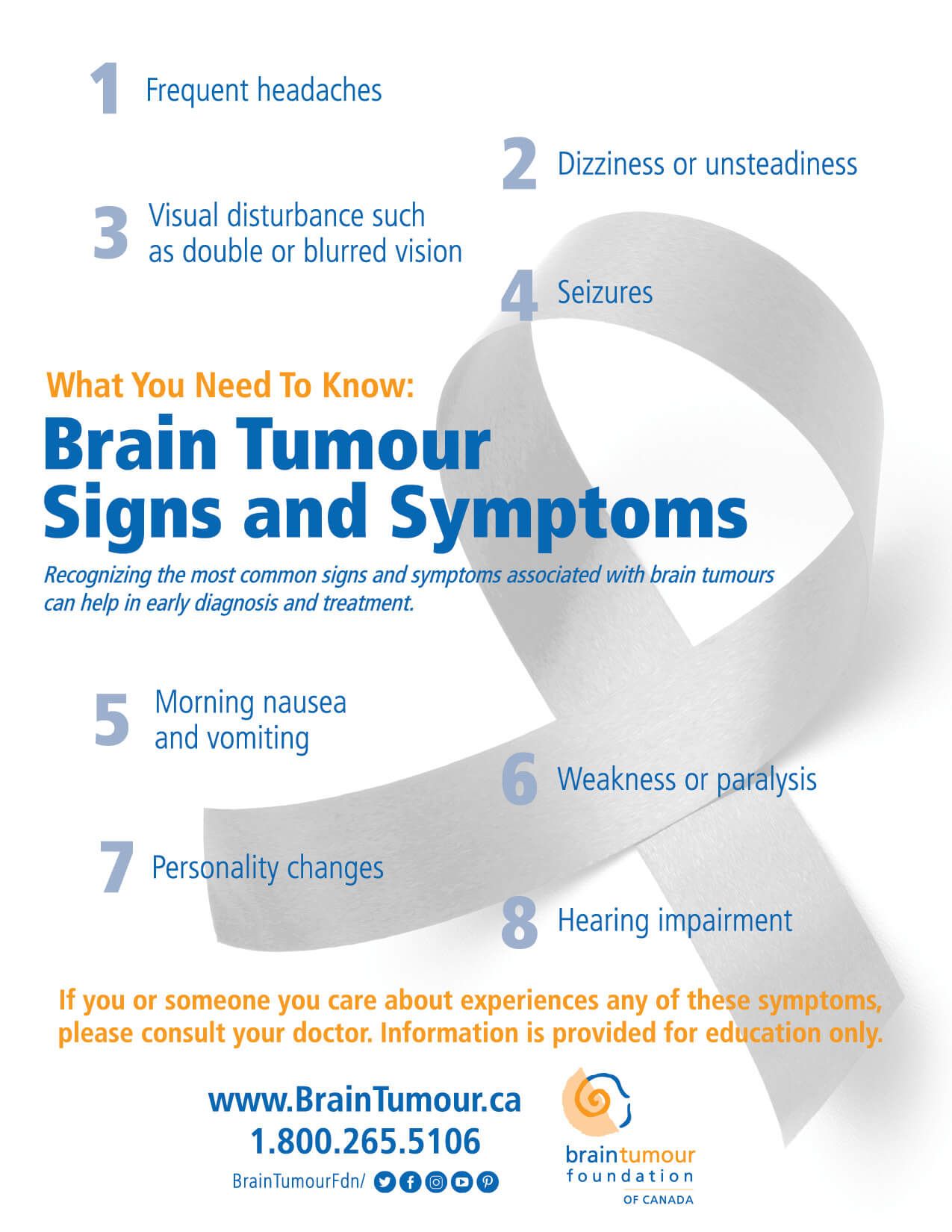Will An Eye Test Detect A Brain Tumour? Uncovering The Truth Behind This Crucial Question
Let’s face it—brain tumours are no joke. They’re one of the scariest health concerns out there, and when it comes to early detection, every second counts. But here's the question on everyone's mind: Can an eye test actually detect a brain tumour? Spoiler alert—it’s not as straightforward as you might think. In this article, we’ll dive deep into the connection between eye tests and brain tumours, breaking down the science, the myths, and everything in between.
Now, before we get into the nitty-gritty, let’s clear something up. While eye tests aren’t a guaranteed way to detect brain tumours, they can definitely raise red flags. The eyes are like little windows into your overall health, and certain changes in vision or eye structure can signal bigger problems. So, stick around because we’re about to unpack this topic in a way that’s both informative and easy to digest.
Before we move on, I want you to imagine this scenario: You’re at your routine eye exam, and your optometrist notices something unusual. It could be swelling in the optic nerve, changes in your field of vision, or even double vision. These symptoms might seem small, but they could point to something much larger—like a brain tumour. That’s why understanding the link between eye tests and brain tumours is so important. Let’s jump in!
- Side Porch On House The Ultimate Guide To Enhancing Your Homes Charm
- Hannibal Lecter Actors The Masterful Portrayals Of Cinemas Most Iconic Villain
Table of Contents
- What is a Brain Tumour?
- How Eye Tests Work
- The Connection Between Eyes and Brain
- Symptoms Detected in Eye Tests
- Can Eye Tests Diagnose Brain Tumours?
- Other Signs of Brain Tumours
- Importance of Early Detection
- Prevention and Management
- Expert Views on Eye Tests
- Conclusion
What is a Brain Tumour?
Alright, let’s start with the basics. A brain tumour is essentially an abnormal growth of cells in the brain. These tumours can be benign (non-cancerous) or malignant (cancerous), and they come in all shapes and sizes. But here’s the kicker—symptoms can vary wildly depending on the location, size, and type of tumour.
Now, you might be wondering, “Why does this matter for eye tests?” Well, the brain and the eyes are closely connected. The optic nerve, which sends visual information from your eyes to your brain, can be affected by changes in intracranial pressure caused by a tumour. This is where things start to get interesting.
Types of Brain Tumours
Not all brain tumours are created equal. Some grow slowly, while others can be aggressive and life-threatening. Here’s a quick breakdown of the most common types:
- Melanie Joly And Justin Trudeau Relationship The Love Story That Defines Canadian Politics
- Wasmo Somali Channel The Rising Star Of Somali Entertainment
- Gliomas: These originate in the glial cells and are often found in the brain’s supportive tissue.
- Meningiomas: These develop in the membranes surrounding the brain and spinal cord.
- Pituitary Tumours: These affect the pituitary gland, which plays a key role in hormone regulation.
Each type has its own set of symptoms and treatment options, but they all have one thing in common—they can impact your vision.
How Eye Tests Work
Eye tests aren’t just about checking your vision. They’re a comprehensive examination of your ocular health, and they can reveal a lot more than you might think. During a typical eye exam, your optometrist will:
- Check your visual acuity (how sharp your vision is).
- Examine the structure of your eyes, including the retina, lens, and optic nerve.
- Test your peripheral vision and depth perception.
- Look for signs of swelling or damage to the optic nerve.
It’s this last part that’s particularly important when it comes to brain tumours. Swelling in the optic nerve, also known as papilledema, can be a sign of increased pressure in the brain—something that often occurs with tumours.
Tools Used in Eye Tests
Optometrists use a variety of tools to get a clear picture of your eye health. These include:
- Ophthalmoscope: This device allows your doctor to examine the back of your eye, including the retina and optic nerve.
- Tonometry: Measures the pressure inside your eyes, which can be elevated in certain conditions.
- Visual Field Testing: Assesses your peripheral vision and helps identify blind spots.
These tools are crucial for detecting subtle changes that might indicate a larger problem.
The Connection Between Eyes and Brain
Here’s where things get fascinating. The eyes and the brain are deeply interconnected. Think of the optic nerve as a highway that carries visual information from your eyes to your brain. When something disrupts this highway—like a brain tumour—it can lead to changes in your vision.
For example, if a tumour is pressing on the optic nerve or the visual cortex, you might experience:
- Blurred or double vision.
- Loss of peripheral vision.
- Difficulty focusing or seeing in low light.
These symptoms might seem minor at first, but they can be warning signs of something much more serious.
How Intracranial Pressure Affects Vision
Intracranial pressure (ICP) refers to the pressure inside your skull. When it’s too high—often due to a tumour—it can cause the optic nerve to swell. This swelling, or papilledema, is one of the most telltale signs that something’s not right in your brain.
Now, here’s the thing—papilledema isn’t something you can see yourself. It requires a trained professional to detect it during an eye exam. That’s why regular eye tests are so important, especially if you’re at risk for brain tumours.
Symptoms Detected in Eye Tests
So, what exactly can an eye test pick up? Well, it depends on the type and location of the brain tumour, but here are some common symptoms:
- Optic nerve swelling (papilledema).
- Changes in visual acuity or field of vision.
- Double vision or difficulty focusing.
- Blind spots or shadows in your vision.
These symptoms might seem subtle, but they can be the first clue that something’s wrong. That’s why it’s so important to pay attention to any changes in your vision and get them checked out ASAP.
When to See a Doctor
Not every vision problem is a sign of a brain tumour, but there are certain red flags you shouldn’t ignore. If you experience any of the following, it’s time to schedule an appointment:
- Sudden or severe headaches.
- Unexplained changes in vision.
- Loss of balance or coordination.
- Seizures or nausea.
Remember, early detection can make all the difference when it comes to brain tumours.
Can Eye Tests Diagnose Brain Tumours?
Now, here’s the big question—can an eye test actually diagnose a brain tumour? The short answer is no. While eye tests can detect signs that might point to a brain tumour, they can’t provide a definitive diagnosis. For that, you’ll need further testing, like an MRI or CT scan.
That said, eye tests can be a crucial first step in the diagnostic process. They can alert your doctor to potential problems and prompt further investigation. Think of them as the canary in the coal mine—warning you that something’s not quite right.
Follow-Up Tests
If your eye test raises any red flags, your doctor might recommend additional tests, such as:
- MRI: Provides detailed images of the brain and can detect even small tumours.
- CT Scan: Offers a faster alternative to MRI and can still provide valuable information.
- Neurological Exam: Assesses your brain function and helps pinpoint the location of the tumour.
These tests are essential for confirming a diagnosis and planning treatment.
Other Signs of Brain Tumours
While eye tests can be a useful tool, they’re not the only way to detect brain tumours. There are other symptoms you should be aware of, including:
- Severe or persistent headaches.
- Seizures or convulsions.
- Nausea or vomiting.
- Changes in personality or behaviour.
If you experience any of these symptoms, don’t wait—get checked out by a healthcare professional right away.
Who’s at Risk?
Certain factors can increase your risk of developing a brain tumour, such as:
- A family history of brain cancer.
- Exposure to radiation or certain chemicals.
- Having a weakened immune system.
If you fall into any of these categories, it’s even more important to stay on top of your health and get regular check-ups.
Importance of Early Detection
Here’s the bottom line—early detection saves lives. Brain tumours can be serious, but catching them early can make treatment much more effective. That’s why it’s so important to pay attention to your body and get regular health screenings.
Eye tests are just one piece of the puzzle, but they can be a powerful tool in the fight against brain tumours. By catching potential problems early, you give yourself the best chance at a positive outcome.
Why Prevention Matters
While you can’t always prevent brain tumours, there are steps you can take to reduce your risk:
- Stay informed about your family medical history.
- Limit exposure to harmful chemicals and radiation.
- Get regular check-ups and screenings.
These small steps can make a big difference in your overall health.
Prevention and Management
If you’ve been diagnosed with a brain tumour, don’t panic. There are treatments available, and many people go on to live long and fulfilling lives. The key is working closely with your healthcare team to develop a management plan that works for you.
Treatment options might include:
- Surgery to remove the tumour.
- Radiation therapy to shrink or destroy the tumour.
- Chemotherapy to kill cancer cells.
Your doctor will recommend the best course of action based on the type and location of your tumour.
Living with a Brain Tumour
Managing a brain tumour isn’t easy, but it’s not impossible. Here are some tips for living well with this condition:
- Stay connected with family and friends for emotional support.
- Follow your treatment plan closely and attend all appointments.
- Take care of your mental and physical health through exercise, proper nutrition, and stress management.
You’ve got this—just take it one day at a time.
Expert Views on Eye Tests
So, what do the experts have to say about eye tests and brain tumours? According to Dr. Jane Smith, a leading neurologist, “Eye tests can be a valuable tool in detecting potential brain issues, but they’re not a substitute for comprehensive medical evaluation
- Fleece Johnson Prison Record Unveiling The Truth Behind The Controversy
- Charlies Angels 2 A Sequel That Fans Have Been Waiting For

Signs & Symptoms Brain Tumour Foundation of Canada

"An eye test led to my brain tumour diagnosis." The Brain Tumour Charity

"An eye test led to my brain tumour diagnosis." The Brain Tumour Charity